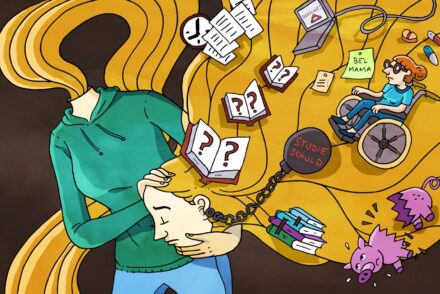On Friendship
You will forgive me for the assumption that most of us have had an opportunity to encounter something of the specimens of a genus Mellon (elvish). I will intentionally leave this concept unattended, leaving it to the readers to map out the characteristics of this phenomena (cf. R. W. Emerson). This freedom of deciding what exactly means to be a friend to someone or to experience the friendship does not imply that there is no overwhelming effort to describe what exactly makes those human interactions that could be classified as a friendship, and today, I daresay, it’s more complex than before. I will try to sketch the today’s state of art of friendship as seen from the perspective from our heroine, the one who already struggled with boredom of tragedies, and who’s struggling to determine what exactly makes someone – a friend.First thing to note is that, more than before, we are scattered around the globe:
Our heroine runs out with her sweater pulled over her head to avoid the Dutch piss rain to once again check her post box — the Easter care package from her Munich based friend hasn’t arrived just yet, but there’s a postcard from Copenhagen, Denmark, – a pen-pal who was just about to fly over to California to visit his childhood friends from back home, in Vranov, Slovakia. She returns dangling her hands in a somewhat sad manner — this package is surely to contain treats and long letter telling about his new work and relationships, and she’s eager to know what is going on in the life of the dear one. Her phone vibrates and she can read that her best friend didn’t have time yet to read the personal e-mail regarding the existential crisis at hand as she’s working on her new play in Zagreb, Croatia. They all said to attend her graduation ceremony in Tilburg, it’s time to start planning just where to take them out and what to submit as Brabant’s national cuisine.
Secondly, it seems that the line between the romantic relationship and friendship, two important foundational variables of our lives, are blurring:
Our heroine and her flatmate were inseparable for more than a year, all the movie screenings were attended and Afghani restaurants, their favourite, visited at least once a week. Then she met him. The most evil man of them all, ’took’ her away. Tragically enough, he was actually a really nice person and they seemed to have something special going on, like plans to travel the Trans-Siberian railway this summer (while our heroine exclusively travelled by plane). Now, our heroine knew she couldn’t provide her with the things she was sharing with the boy (ok, she could but it wasn’t her thing), but the certain kind of pain persisted, the feeling of being left aside, not taking the same role in her friend’s life as she used to.
Now, the thought that we increasingly scattered around the globe (coming from my anecdotal evidence) combined with the idea that the romantic relationships often take on the characteristics of what seems to be a friendship in a highly idealized sense, might lead someone to draw a preliminary conclusion that the individual is finding it hard, if impossible to create and maintain strong and rooted friendships.
This kind of claim would presuppose that there was ever a strong, robust notion of what a friendship is, and what exactly the role of being a friend to someone consists of. On the contrary, I think that it is more plausible to assume that the notions of friendship and what it means to be a friend stem from different levels of interactions we have with people around us, all of which are inspired by deeply intimate ideas of what we find important in life.
In this way, the defining power of friendship is for the great part inside each of us and those people that at some point become our friends. Simple, isn’t it?






